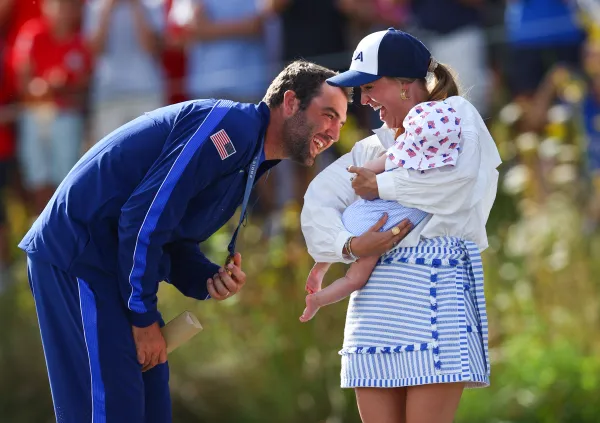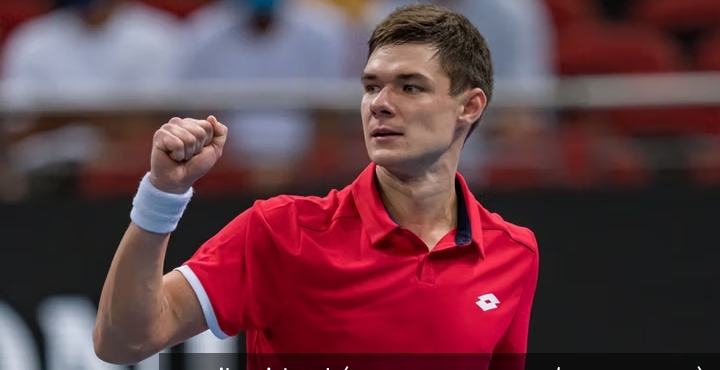Rory McIlroy Defends Controversial FedEx Cup Format as Playoff Drama Unfolds: Is It the Best Way to Crown a Champion?
Rory McIlroy Defends Controversial FedEx Cup Format as Playoff Drama Unfolds: Is It the Best Way to Crown a Champion?
As the PGA Tour’s FedEx Cup playoff season kicks off with the St. Jude Championship in Memphis, Rory McIlroy has stepped up to voice his support for the current playoff structure. This season-ending tournament is one of three crucial events that will determine the FedEx Cup champion, with McIlroy aiming to extend his record tally of three wins. The FedEx Cup, which is based on PGA Tour points accumulated from January through August, is a high-stakes series that showcases the season’s elite golfers.
To qualify for the St. Jude Championship, the top 70 players from the points standings make the cut. The stakes are high as only 50 players will advance to the BMW Championship, with a victory in either of these playoffs granting a substantial boost of 2,000 extra points—an amount four times greater than what is awarded in regular PGA events.
The grand finale, the Tour Championship, brings together the top 30 players. The format used in this final event has been a subject of debate: a staggered-stroke system that adjusts players’ starting scores based on their FedEx Cup points standings. This system, which some find controversial, is intended to heighten the suspense and excitement surrounding the conclusion of the season, offering a lucrative £19.4 million ($25 million) grand prize to the ultimate winner.
Despite criticisms from some top players, including LIV Golf’s Jon Rahm, McIlroy has defended the PGA Tour’s playoff format. Rahm, known for his outspoken views, has criticized the fairness of the FedEx Cup system. He argued that a player could dominate the season and win multiple events, including both playoff tournaments, but still find themselves at a disadvantage if they perform poorly in the Tour Championship’s final leg. Rahm’s concerns reflect a broader debate about whether the playoff system truly rewards consistent performance throughout the season or simply creates a high-stakes, winner-take-all scenario.
In a recent interview before the St. Jude Championship, McIlroy expressed his admiration for the FedEx Cup format. “I love this format because if it wasn’t this format, then none of us would have a chance against Scottie Scheffler because he’s so far ahead,” McIlroy said. He acknowledged that Scheffler’s dominance might make it seem like the playoffs are less about the overall season performance and more about catching up in a single event.
McIlroy admitted that while the system may not offer a perfect reflection of the season’s best player, it adds a level of excitement and entertainment that benefits fans and the sport’s visibility. “Is it the fairest reflection of who’s been the best player of the year? Probably not,” McIlroy conceded. “But at this point, we’re not in for totally fair; we’re in for entertainment and for trying to put on the best product we possibly can.”
McIlroy, who has won the Tour Championship twice under this format, appreciates the “reset” effect it provides. The system allows the leader at the start of the Tour Championship to begin with a 10-under par score and a two-shot lead, while those at the bottom start at par. This adjustment aims to create a level playing field, albeit not entirely equal, giving everyone a chance to make a comeback in the final round.
The debate over the FedEx Cup format highlights a broader discussion about how best to reward excellence in golf. LIV Golf players, including Rahm before his departure from the PGA, have expressed skepticism about the system’s fairness. Rahm’s criticism in 2021 emphasized the potential for a dominant player to lose their edge in the final event despite a stellar season.
As the St. Jude Championship gets underway, McIlroy’s defense of the format underscores the tension between maintaining traditional fairness and embracing new, engaging formats designed to captivate audiences and enhance the competitive drama of the season’s conclusion. Whether the FedEx Cup system ultimately delivers on its promises of excitement and entertainment, or if it will be re-evaluated in the future, remains a topic of ongoing debate among players, fans, and analysts alike.






